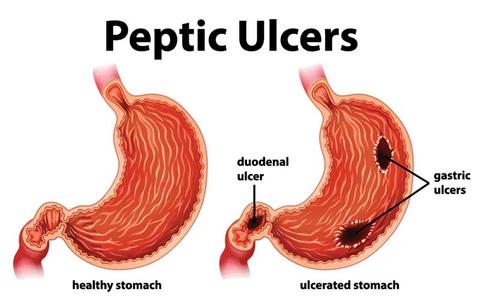
What are the symptoms of peptic ulcer disease?
You may have an ulcer if you suffer from:
- Stomach pains
- Heartburn
- Nausea
- Vomiting
- Weight loss
- Appetite changes
However, the majority of people with peptic ulcers don't show signs of any symptoms.
How is peptic ulcer disease diagnosed?
To identify if you have an ulcer you may be required to provide a blood test and stool sample. You may also be referred to have a gastroscopy.
How is peptic ulcer disease treated?
Ulcers generally have two causes; regular use of over the counter painkillers or from the H.pylori (Helicobacter pylori) bacteria. If you use painkillers you may be prescribed an alternative medication. If it is found that you have the H.pylori bacteria, a course of antibiotics should be able to treat this.
You may need another gastroscopy to confirm that your ulcers have healed. You can also help prevent any ulcers from forming by stopping smoking, reducing your stress levels and eating a balanced diet.
Book A Consultation
If you are suffering from any of the symptoms listed above and would like to see a gastroenterologist in Surrey, please get in touch to book a consultation with Professor Ala.
Useful Links

